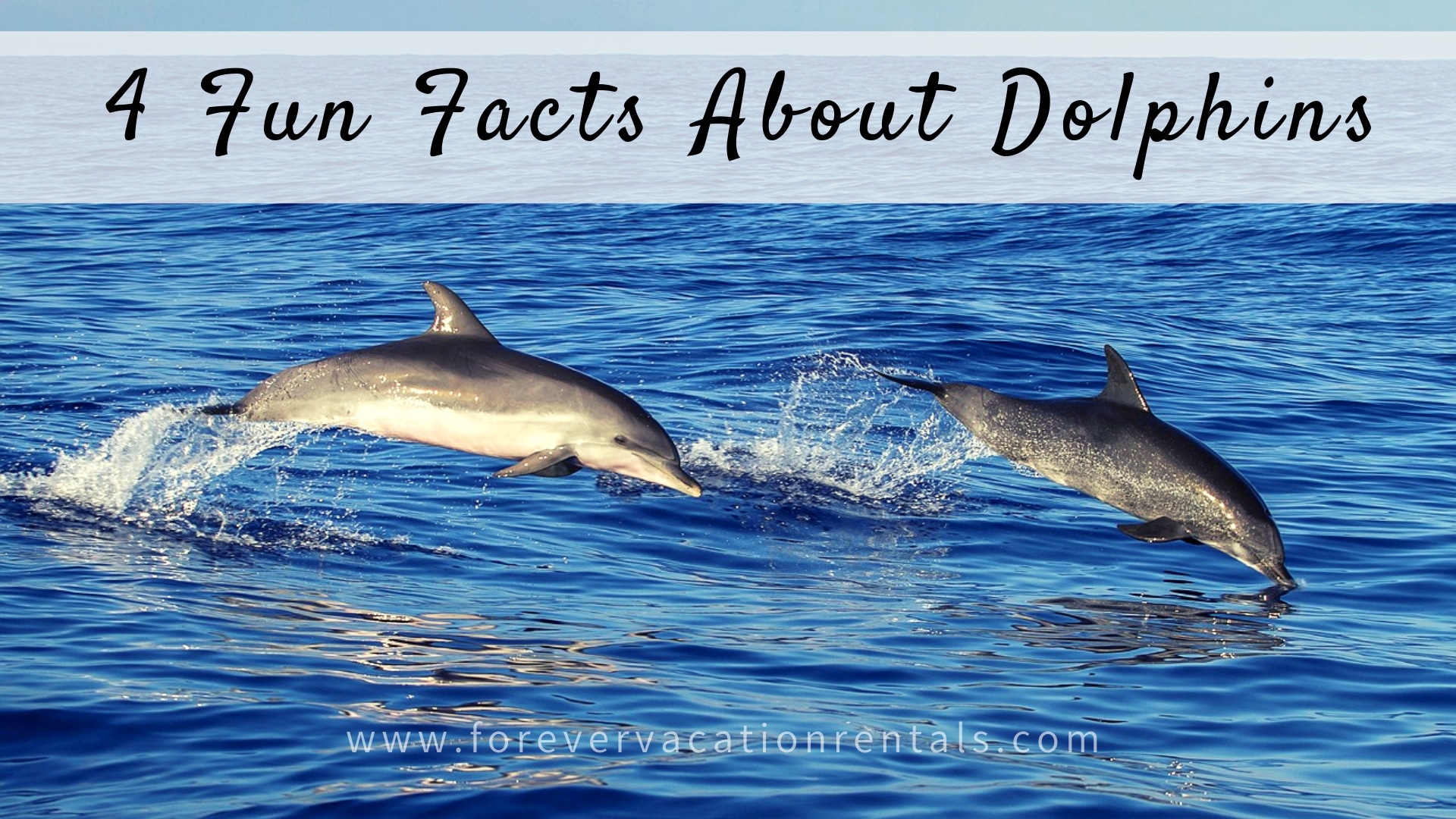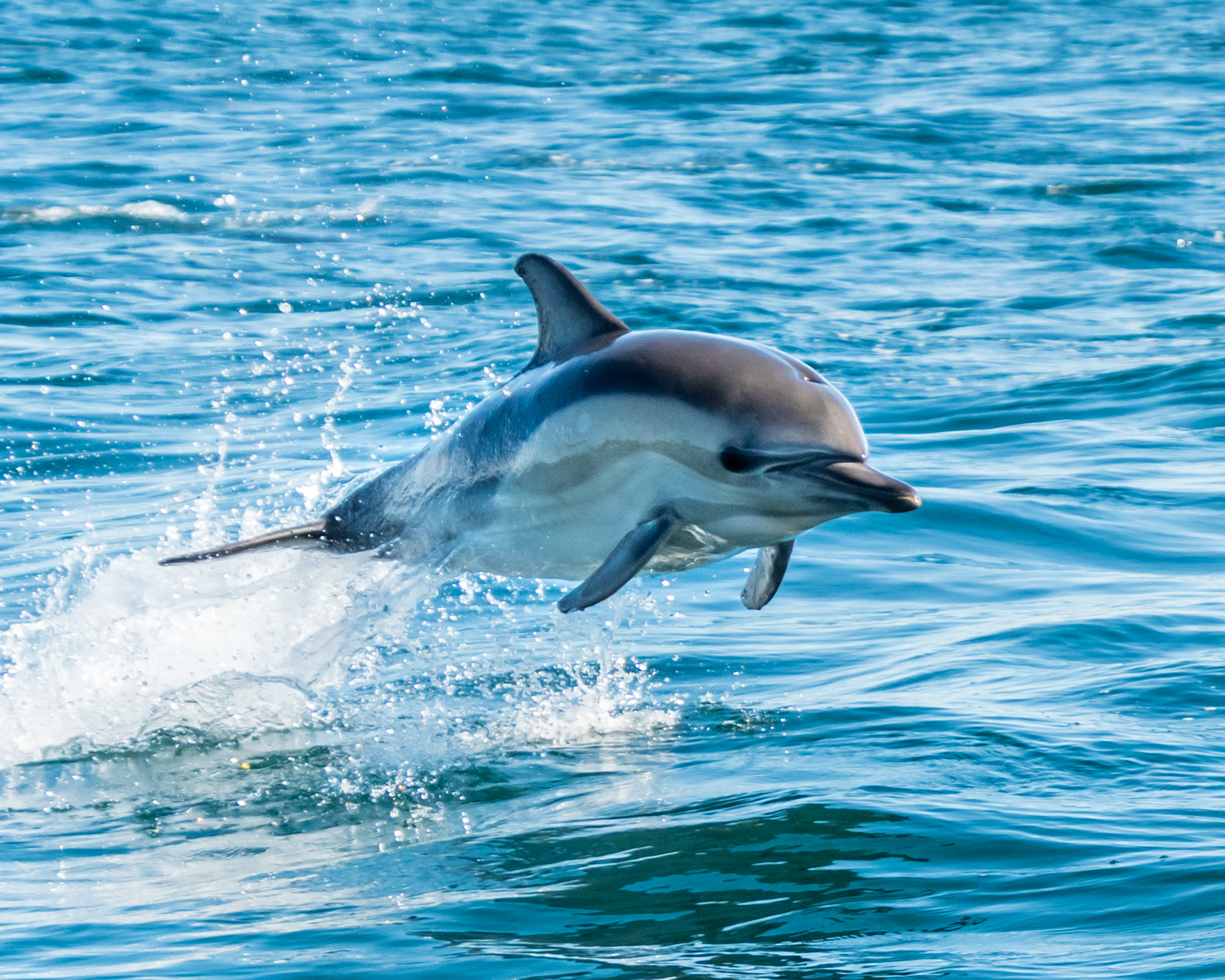Obtain Inspired by Dolphin Facts That Highlight Their Problem-Solving Abilities
Obtain Inspired by Dolphin Facts That Highlight Their Problem-Solving Abilities
Blog Article
Study the Sea: Exciting Dolphin Realities for Sea Lovers
The globe of dolphins offers a remarkable crossway of intelligence, social habits, and eco-friendly value. With about 37 varieties, these aquatic animals display a series of impressive qualities that not only captivate ocean lovers however also highlight their crucial function in marine ecosystems. From their complex interaction techniques to their impressive problem-solving capacities, dolphins test our understanding of animal knowledge. The pushing need for preservation efforts to shield these animals and their habitats raises important questions about our obligation towards the sea's residents. What implications do these variables hold for our interactions with these impressive beings?
Dolphin Types Diversity
Diversity is a characteristic of the dolphin family, incorporating a vast array of species that display distinctive physical qualities, actions, and habitats. The household Delphinidae, frequently called nautical dolphins, consists of approximately 37 types, each adjusted to details environmental specific niches. The bottlenose dolphin (Tursiops truncatus) is renowned for its knowledge and versatility, growing in both open and coastal ocean atmospheres.
On the other hand, the whale (Orcinus whale), often referred to as the killer whale, is the biggest participant of the dolphin family members and is identified by its striking black-and-white coloration. Orcas demonstrate complex social structures and hunting methods, showcasing the behavior variety within the household. Various other types, such as the rewriter dolphin (Stenella longirostris), are kept in mind for their acrobatic screens and choice for warmer waters, highlighting the adaptability of dolphins to various marine communities.
Furthermore, river dolphins, including the pink river dolphin (Inia geoffrensis), occupy freshwater atmospheres, even more illustrating the wide-ranging habitats that dolphins occupy. Dolphin Facts. This incredible diversity not just improves aquatic ecosystems however additionally stresses the value of preservation efforts to safeguard these remarkable animals and their atmospheres
Social Habits and Communication
The elaborate social behavior and interaction techniques of dolphins are important components of their presence, promoting group cohesion and enhancing survival. These very smart marine creatures show facility social frameworks, often creating capsules that can vary from a few people to over a hundred. Within these teams, dolphins take part in actions such as cooperative searching, social play, and shared security, which foster solid bonds among participants.
Dolphins utilize an innovative variety of vocalizations, including clicks, whistles, and body movement, to share info and express feelings. Their signature whistles act as distinct identifiers, akin to names, allowing individuals to call out to each other. This vocal interaction is complemented by non-verbal signals, such as jumping, slapping the water, and integrated swimming, which even more boosts their interactions.

Unique Feeding Habits
Unique feeding practices characterize dolphins, showcasing their flexibility and knowledge in various aquatic atmospheres. These marine creatures are understood for their diverse diet regimens, which mostly include fish, squid, and shellfishes. Their searching techniques company website can vary his response considerably, frequently customized to the particular prey and ecological conditions.
One remarkable technique is participating hunting, where dolphins function in groups to herd colleges of fish into limited formations, making it less complicated for individuals to capture their dish. This social habits not just enhances their feeding performance however additionally strengthens social bonds within the pod. Furthermore, dolphins have been observed utilizing a technique called "fish-whacking," where they use their tails to disorient or stun fish, facilitating much easier capture.
An additional interesting feeding behavior is echolocation, which enables dolphins to discover target even in murky waters. By emitting sound waves and analyzing the returning echoes, they can determine the dimension, shape, and place of their targets. This impressive ability highlights their flexibility in various habitats, from superficial seaside locations to much deeper oceanic waters. Generally, the one-of-a-kind feeding practices of dolphins highlight their function as knowledgeable predators within the marine community, showing both knowledge and ingenuity.
Knowledge and Trouble Solving
Their intelligence is evident in their problem-solving abilities, social communications, and capability for discovering. Research study has shown that dolphins can use tools, such as using aquatic sponges to secure their rostrums while foraging on the seafloor.
Furthermore, dolphins show sophisticated communication abilities, utilizing a complex system of clicks, whistles, and body movement. Dolphin Facts. This interaction is important for coordinating team tasks, such as searching and interacting socially, illustrating their ability to work jointly towards an usual goal. Their ability to recognize abstract principles, including self-recognition in mirrors, better highlights their cognitive sophistication
In regulated studies, dolphins have actually shown a capacity to resolve challenges and carry out jobs that require both memory and critical thinking. These communications indicate not just knowledge yet additionally a determination to involve with their atmosphere in unique ways. Generally, the cognitive prowess of dolphins puts them among one of the most smart species in the world, fostering a much deeper admiration for their role in aquatic communities.
Conservation and Environmental Effect
Preservation efforts focused on shielding marine environments are crucial for protecting dolphin populaces and their habitats. Dolphins are highly sensitive to ecological adjustments, and their survival is intricately linked to the wellness of oceanic communities. Overfishing, air pollution, and climate change position substantial hazards to both dolphins and their environments.
Overfishing interrupts the food cycle, causing a decrease in victim types crucial for dolphin survival. Furthermore, pollutants such as plastics and chemicals build up in marine atmospheres, jeopardizing dolphins through ingestion and bioaccumulation. Enhanced water temperatures and ocean acidification, consequences of environment adjustment, better threaten the fragile equilibrium of marine communities, affecting dolphin breeding and migratory patterns.
By prioritizing preservation initiatives, we can make sure that future generations appreciate the charm and vigor of dolphins and the oceans they live in. Securing marine ecological communities is not just concerning saving dolphins; it is regarding preserving the complex internet news of life that sustains us all.
Verdict
Dolphins exhibit the intricacy and splendor of aquatic life via their diverse species, elaborate social structures, and advanced cognitive capabilities. As crucial parts of aquatic ecosystems, dolphins underscore the necessity of ongoing conservation efforts to safeguard their habitats.
Other varieties, such as the spinner dolphin (Stenella longirostris), are noted for their acrobatic screens and choice for warmer waters, highlighting the versatility of dolphins to different marine environments.
Overall, the unique feeding routines of dolphins highlight their duty as experienced predators within the marine ecological community, showing both knowledge and ingenuity.
On the whole, the cognitive expertise of dolphins positions them among the most intelligent species on the earth, cultivating a much deeper recognition for their function in aquatic environments.

Report this page